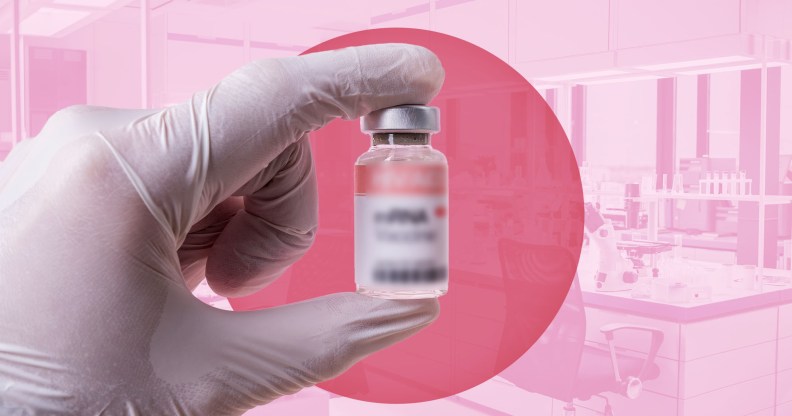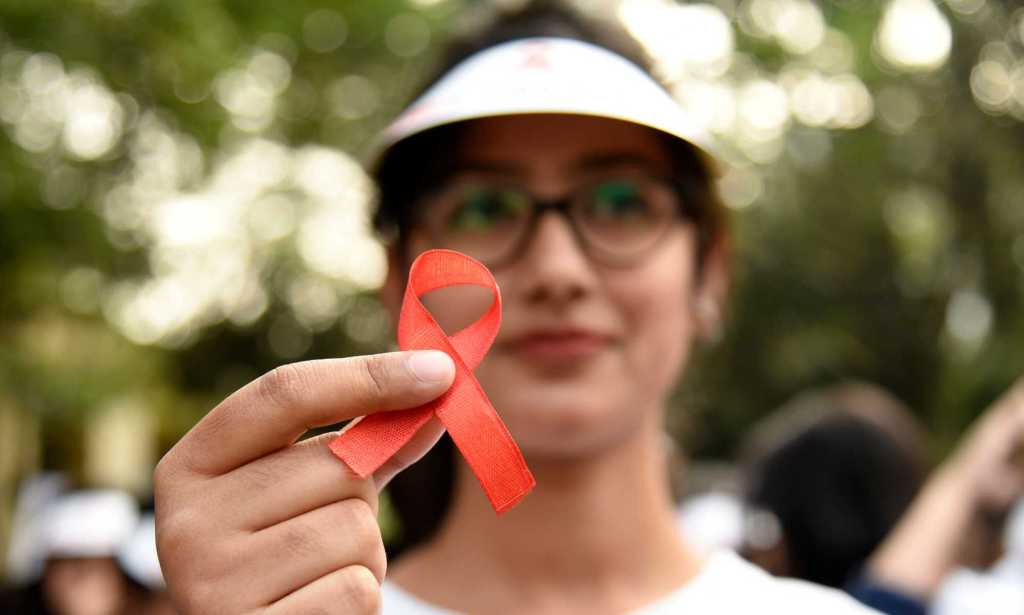HIV vaccine scrapped by Johnson & Johnson after failing trial: ‘Disappointing but not unexpected’

A HIV trial has been scrapped after results showed it did not work (Getty Images)
A HIV trial has been scrapped after results showed it did not work (Getty Images)
In a devastating blow to HIV research, the plug has been pulled on the global trial of an experimental HIV vaccine after it was deemed ineffective.
On Wednesday (January 18), pharmaceutical conglomerate Johnson & Johnson announced it would discontinue the Mosaico study (also known as HPX3002/HVTN706), which focused on testing an “investigational vaccine regimen” to prevent HIV.
The Mosaico study attempted to prove whether an experimental vaccine regimen can prevent infections in North America, Latin America and Europe.
To do this, the study enrolled 3,900 volunteers who were “cisgender men and transgender people who have sex with cisgender men and/or transgender people”.
It was stated that if Mosaico worked, it would be a “very important step on the way to finding a safe and effective vaccine for the prevention of HIV”.
The trial’s failure marks yet another setback in the search for a vaccine against the virus, and comes more than a year after previous J&J’s HIV vaccine failed a study.

In a statement J&J explained the study was shelved after a review of Phase 3 of the trial by its independent Data and Safety Monitoring Board (DSMB) determined that the regimen was “not effective in preventing HIV infection compared to placebo among study participants”.
However, they also said “no safety issues with the vaccine regimen were identified”.
Dr. Penny Heaton, who leads the vaccine effort at the J&J subsidiary Janssen Research & Development, LLC, said: “We are disappointed with this outcome and stand in solidarity with the people and communities vulnerable to and affected by HIV,”
“Though there have been significant advances in prevention since the beginning of the global epidemic, 1.5 million people acquired HIV in 2021 alone, underscoring the high unmet need for new options and why we have long worked to tackle this global health challenge.
“We remain steadfast in our commitment to advancing innovation in HIV, and we hope the data from Mosaico will provide insights for future efforts to develop a safe and effective vaccine.
“We are grateful to our Mosaico partners and the study investigators, staff and participants.”
“Disappointing but not unexpected”
Matthew Hodson, the executive director of UK-based organisation aidsmap, described the news as “disappointing but not unexpected” and said the trial’s end means a vaccine is still a long way off.
He said: “The failure of the MOSAICO trial, testing an HIV vaccine for gay and bi men and trans people, is disappointing but not unexpected.
“HIV is an unusual virus in that it does not usually produce an immune response that is enough to stop or contain infection.
“This makes it more difficult to develop an effective vaccine for HIV than for COVID-19.
“The closure of the Mosaico trial, after failing to demonstrate a positive effect, means that there now aren’t any vaccines in development that are close to completing the necessary tests for effectiveness.
“Some other vaccine approaches are currently in development but this means, at best, a workable HIV vaccine is many years away.”
Hodson added that an ideal vaccine would be a “single dose of a formula that is easy to store, transport and administer”, which could be given to people before they are sexually active.
However due to the failure of Mosaico, “that is no longer a realistic prospect in this decade”.
“But even without vaccination we have effective methods of preventing HIV transmission.
“HIV treatment means that HIV can not be passed on during. PrEP is about as effective as any vaccine could aspire to.
“The challenge is that more than a decade after PrEP’s effectiveness was established, levels of awareness, adoption and adherence still remain below the levels required to end new infections.
“Injectable PrEP, which may be available quite soon, could be a game changer.
“In the future, injections may be effective with only one or two doses per year, making it similar to the vaccines that we use for flu and COVID.
“The failure to find an effective vaccine underlines the importance of ensuring that all people who would benefit are aware of PrEP and are able to access it.”
The Terrence Higgins Trust has been contacted for reaction.

